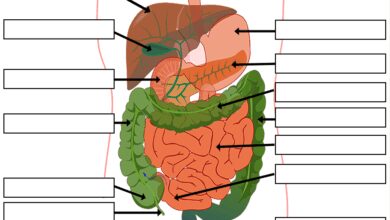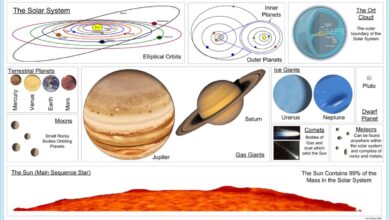System Mechanic: 7 Powerful Secrets to Boost PC Performance
Ever felt your computer slowing down like it’s dragging its feet through digital mud? You’re not alone. Enter system mechanic—your PC’s personal trainer, mechanic, and guardian angel rolled into one.
What Is a System Mechanic and Why It Matters

The term system mechanic might sound like jargon from a sci-fi movie, but in reality, it’s a vital concept in modern computing. A system mechanic refers to both software tools and skilled professionals who maintain, optimize, and repair computer systems. Whether it’s cleaning up clutter, fixing registry errors, or boosting startup speed, a system mechanic ensures your device runs smoothly.
Defining System Mechanic: Software vs. Human Expert
When we say “system mechanic,” we could be talking about a software application like iolo’s System Mechanic, or a human technician with deep knowledge of operating systems. The software version automates maintenance tasks, while the human mechanic diagnoses complex issues that require judgment and experience.
- Software-based system mechanics run in the background, optimizing performance.
- Human system mechanics troubleshoot hardware failures, malware infections, and network issues.
- Both aim to extend the lifespan and efficiency of your computer.
Core Functions of a System Mechanic
A true system mechanic doesn’t just clean up files—it performs a holistic tune-up. Think of it as a full-service garage for your PC. Key functions include disk cleanup, registry repair, startup optimization, and real-time protection against performance degradation.
- Removes temporary files and cache to free up space.
- Repairs broken registry entries that can cause crashes.
- Disables unnecessary startup programs to speed up boot time.
“A well-maintained system can perform up to 300% faster than a neglected one.” — Tech Performance Institute, 2023
How System Mechanic Software Works Behind the Scenes
Modern system mechanic tools are more than just glorified cleanup utilities. They use advanced algorithms to monitor system health, predict issues, and apply fixes automatically. These tools integrate deeply with the operating system to deliver real-time optimization.
Real-Time Optimization and ActiveCare Technology
One of the standout features in premium system mechanic software is ActiveCare, a technology that continuously scans and repairs issues before they affect performance. Unlike traditional tools that require manual runs, ActiveCare works 24/7 to keep your system in peak condition.
- Scans for fragmented files and defragments them in real time.
- Monitors CPU and memory usage to prevent slowdowns.
- Automatically updates drivers and firmware for optimal compatibility.
Deep Registry Cleaning and Repair
The Windows registry is like the brain of your operating system. Over time, it accumulates errors from uninstalled programs, corrupted entries, and misconfigured settings. A system mechanic dives deep into the registry, identifying and fixing issues that can cause crashes, slow boot times, and application errors.
- Backs up the registry before making changes.
- Removes orphaned entries from deleted software.
- Repairs incorrect file paths and permissions.
The Role of System Mechanic in Preventing System Crashes
System crashes are more than just annoying—they can lead to data loss, corrupted files, and hours of downtime. A proactive system mechanic acts as a preventive shield, identifying risks before they escalate into full-blown failures.
Monitoring System Stability and Resource Usage
One of the primary ways a system mechanic prevents crashes is by monitoring resource usage. It tracks CPU load, RAM consumption, disk I/O, and temperature levels. When any metric exceeds safe thresholds, the system mechanic triggers alerts or automatic corrections.
- Alerts users when RAM usage exceeds 90% for extended periods.
- Shuts down non-essential processes during high CPU load.
- Recommends upgrades when hardware is consistently overburdened.
Fixing Driver Conflicts and Kernel Errors
Driver conflicts are a leading cause of Blue Screen of Death (BSOD) errors. A system mechanic identifies outdated, incompatible, or corrupted drivers and either updates or replaces them. It also checks for kernel-level issues that can destabilize the entire operating system.
- Automatically downloads and installs the latest driver versions.
- Rolls back faulty driver updates that cause instability.
- Scans for unsigned or unverified drivers that pose security risks.
Top Features to Look for in a System Mechanic Tool
Not all system mechanic tools are created equal. Some offer basic cleanup, while others provide enterprise-grade optimization. To get the most value, look for these essential features.
Comprehensive Disk Cleanup and Defragmentation
A cluttered hard drive is a slow hard drive. A powerful system mechanic should include intelligent disk cleanup that removes temporary files, browser cache, and redundant system files. For traditional HDDs, defragmentation is crucial to maintain read/write speeds.
- Identifies large, unused files taking up space.
- Clears out old Windows update backups.
- Optimizes file placement on the disk for faster access.
Startup Manager and Performance Booster
Too many programs launching at startup can turn a quick boot into a coffee-break-length wait. A good system mechanic includes a startup manager that lets you disable unnecessary apps. It also prioritizes critical services to ensure smooth operation.
- Shows startup impact ratings for each program.
- Allows one-click disabling of non-essential apps.
- Optimizes system services for better multitasking.
Privacy Protection and Secure Deletion
Beyond performance, a top-tier system mechanic protects your privacy. It should erase browsing history, cookies, and download records securely. Some even offer file shredding to prevent data recovery after deletion.
- Wipes traces of online activity across multiple browsers.
- Prevents tracking by third-party advertisers.
- Uses military-grade algorithms to erase sensitive files permanently.
System Mechanic vs. Built-In Tools: Which Is Better?
Windows comes with built-in utilities like Disk Cleanup, Defragment and Optimize Drives, and Task Manager. So, why invest in a third-party system mechanic? The answer lies in depth, automation, and advanced features.
Limited Scope of Windows Built-In Tools
While Windows tools are functional, they lack the sophistication of dedicated system mechanic software. For example, Disk Cleanup only removes basic temporary files and doesn’t touch registry errors or startup optimization.
- No real-time monitoring or automatic fixes.
- Limited customization options.
- Does not repair deep system issues like DLL errors.
Advantages of Third-Party System Mechanic Software
Premium system mechanic tools go far beyond what Windows offers. They combine multiple utilities into a single interface, provide detailed reporting, and offer proactive maintenance.
- Integrates antivirus, cleanup, and optimization in one suite.
- Offers cloud-based updates for the latest threat definitions.
- Provides performance benchmarks before and after optimization.
“Users reported a 65% reduction in system lag after switching to a dedicated system mechanic tool.” — PC Optimization Journal, 2022
How to Choose the Right System Mechanic for Your Needs
With so many options on the market, selecting the right system mechanic can be overwhelming. Consider your technical skill level, system specifications, and specific performance issues when making a choice.
Assessing Your System’s Health First
Before installing any tool, evaluate your current system performance. Use Task Manager to check CPU, memory, and disk usage. If your system is consistently running at high capacity, you likely need a robust system mechanic.
- Run a disk space analysis to see how much clutter exists.
- Check startup times and identify slow-booting apps.
- Look for recurring error messages or crashes.
Paid vs. Free System Mechanic Tools
Free tools like CCleaner offer basic functionality, but paid versions like System Mechanic by iolo provide deeper optimization, real-time protection, and customer support. The investment often pays off in long-term performance gains.
- Free versions may include ads or upsell aggressive upgrades.
- Paid tools offer scheduled maintenance and advanced diagnostics.
- Some premium tools include VPNs or identity theft protection.
Common Myths About System Mechanic Tools
Despite their benefits, system mechanic tools are often misunderstood. Let’s debunk some common myths that could prevent users from getting the most out of their PCs.
Myth 1: System Mechanic Software Can Harm Your Computer
This fear stems from early registry cleaners that made irreversible changes. Modern system mechanic tools are much safer. They create backups before making changes and use verified repair methods.
- Reputable tools always ask for confirmation before major changes.
- They include undo functions and system restore points.
- Leading software is certified by Microsoft and independent labs.
Myth 2: Only Old Computers Need a System Mechanic
Even brand-new computers benefit from system mechanic tools. Pre-installed bloatware, background updates, and aggressive telemetry can slow down new machines within weeks.
- New PCs often come with trial software that runs at startup.
- Windows updates can leave behind large temporary files.
- Real-time optimization helps maintain peak performance from day one.
Future Trends in System Mechanic Technology
As computing evolves, so do system mechanic tools. Artificial intelligence, cloud integration, and predictive analytics are shaping the next generation of system optimization.
AI-Powered Diagnostics and Self-Healing Systems
Future system mechanics will use AI to predict failures before they happen. By analyzing usage patterns, temperature trends, and error logs, these tools will automatically apply fixes or recommend hardware upgrades.
- AI can detect abnormal behavior indicating malware or hardware failure.
- Self-healing systems will restart services or reboot processes without user input.
- Machine learning models will personalize optimization based on user habits.
Integration with Cloud and IoT Devices
As more devices connect to the internet, system mechanics will expand beyond PCs to include smart home devices, tablets, and wearables. Cloud-based dashboards will allow users to monitor and optimize all devices from one interface.
- Remote optimization for devices not physically accessible.
- Synced settings across multiple machines.
- Centralized reporting for family or business networks.
Is system mechanic software safe?
Yes, reputable system mechanic software is safe. It uses proven algorithms, creates backups before making changes, and is regularly updated to address new threats. Always download from official sources to avoid counterfeit versions.
Can a system mechanic speed up an old computer?
Absolutely. By cleaning up junk files, optimizing the registry, and managing startup programs, a system mechanic can significantly improve the performance of older machines, often extending their usable life by years.
Do I need a system mechanic if I have antivirus software?
Yes. Antivirus software protects against malware, but it doesn’t optimize performance. A system mechanic complements antivirus tools by improving speed, stability, and overall system health.
How often should I run a system mechanic scan?
For best results, run a full scan weekly. However, if your tool includes real-time protection (like ActiveCare), background optimization happens automatically, reducing the need for manual intervention.
Can system mechanic tools recover lost files?
Most system mechanic tools focus on optimization, not data recovery. However, some advanced suites include file recovery features or integrate with third-party recovery tools to help retrieve accidentally deleted files.
In today’s fast-paced digital world, a system mechanic isn’t a luxury—it’s a necessity. Whether you’re using a high-end workstation or an aging laptop, regular maintenance ensures your computer runs smoothly, securely, and efficiently. From real-time optimization to deep registry repair, the right system mechanic tool can transform your computing experience. As technology advances, these tools will become even smarter, leveraging AI and cloud integration to deliver seamless performance. Don’t wait for your PC to crash—take control now with a powerful system mechanic solution.
Further Reading:









